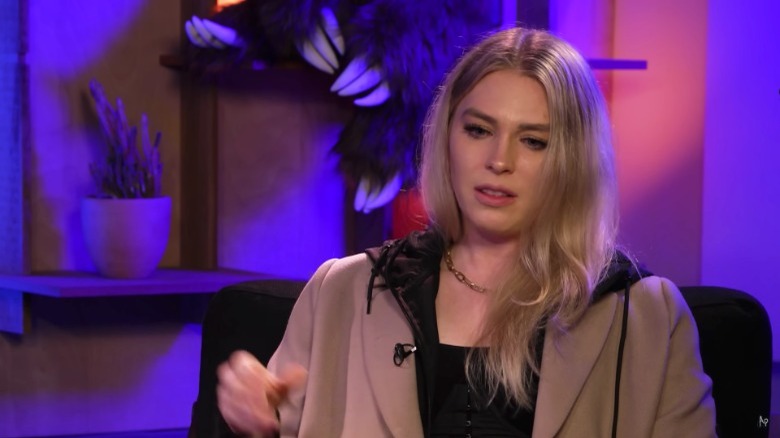Twitch Finally Broke Its Silence On Deepfake Scandal
Viewers have been waiting for Twitch to make a comment after the deepfake scandal that rocked the streaming world in early 2023, but for a month there's been nothing but silence. Now, Twitch has released a statement addressing how it plans to handle deepfake content moving forward, explaining that it's committed to helping victims of nonconsensual deepfake content in addition to helping creators better spot such content.
Twitch's announcement outlined a threefold plan to help combat the growing issue of deepfake content, and especially nonconsensual deepfake images. First, Twitch changed its Non-consensual Exploitative Images (NCEI) policy by amending its language to account for falsified materials, like deepfake pornography. By clarifying the language in its Terms of Service, Twitch hopes to eliminate any confusion and create an airtight set of rules in the case of an infraction.
Secondly, Twitch said that it consulted with a team of experts to address this situation, mentioning the Cyber Civil Rights Initiative and the UK Revenge Porn Helpline by name. While the helpline is addressing those who have been harmed in specific incidents, the Cyber Civil Rights Initiative provided expert advice on what needs to happen moving forward. Part of Twitch's preemptive measures to prevent future incidents involves the third part of its plan, a specially themed Creator Camp event.
On March 14, a Creator Camp program, led by Revenge Porn Helpline manager and Twitch streamer Zara Ward, aims to educate streamers about NCEI material and what to do if they encounter it online. While those measures are a step in the right direction, Twitch users and journalists had a different take on the statement.
The law hasn't caught up to the internet
Twitch's statement primarily focused on women as the victims of NCEI, but many Twitch users argued that deepfake materials also affect men. However, NBC reporter Kat Tenbarge had a more nuanced take on the debate, acknowledging that deepfake materials affect men, women, and children, and that the Twitch incident with Atrioc actually boosted the popularity of NCEI materials.
February 2023 saw the most uploads of deepfake porn videos in one month ever. There are a slew of popular forums & websites to view and upload them to as well as to request and sell them. Some researchers believe millions of women have been affected already and most may not know.
— Kat Tenbarge (@kattenbarge) March 7, 2023
Though no one suggested ignoring the growing danger of synthetic NCEI materials, Tenbarge highlighted that increasing knowledge of these materials is fueling their production – as evidenced by a variety of deepfake apps that popped up in recent months.
It's clear that deepfake content upsets those depicted in it, and violates their rights, but unfortunately the law hasn't caught up just yet. After the Twitch deepfake scandal in late January, QTCinderella – who appeared in some of the faked material – attempted to build a case and pursue legal action. However, the case hit a heartbreaking wall once she and her legal team discovered that there aren't laws to account for synthetic NCEI material yet. While Twitch's statement is a positive move, there's still work to be done when it comes to consent and the internet.


